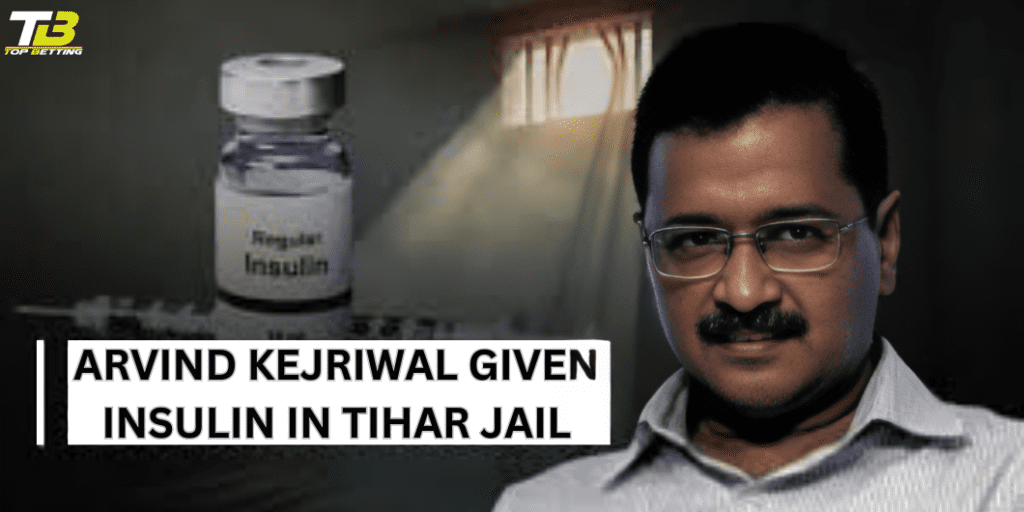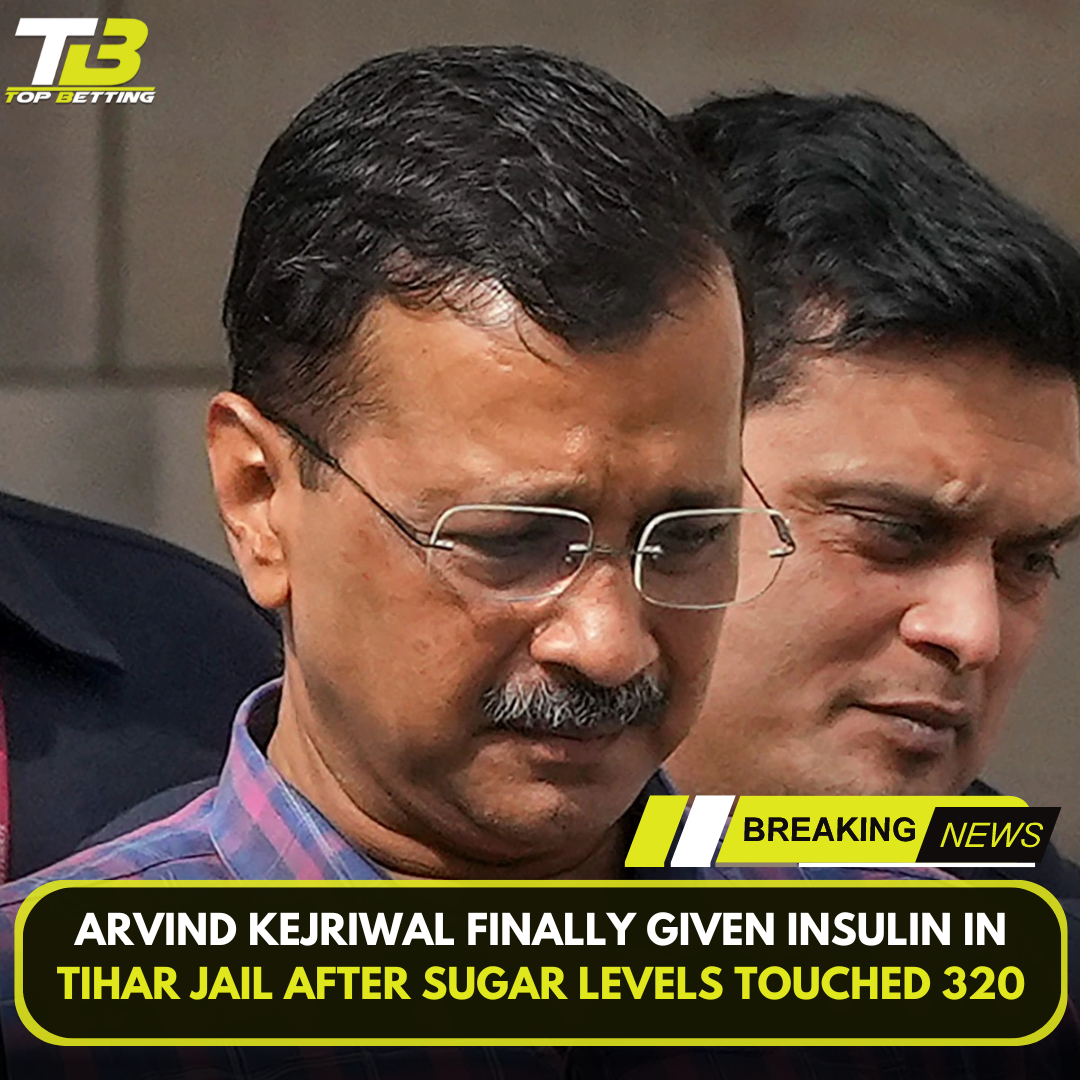
Arvind Kejriwal given insulin in Tihar jail
In a significant turn of events, Arvind Kejriwal, the Chief Minister of Delhi, was finally given insulin treatment in Tihar jail after his blood sugar levels reached a critical point of 320. This development comes after days of struggle and demands for proper medical care by the Aam Aadmi Party (AAP). In this article, we delve into the details of this incident, exploring the journey of Kejriwal’s fight for insulin and the subsequent administration of the treatment. We also analyze the response from the AAP, Tihar jail officials, and other political figures.
The Struggle for Insulin Treatment
Arvind Kejriwal, who is currently under judicial custody in connection with a money-laundering case related to the Delhi liquor excise policy, had been vocal about his increasing blood sugar levels and the lack of diabetes specialists in Tihar jail. His sugar levels had been consistently above 300 for the past ten days, necessitating immediate medical intervention. The AAP, in their statement, expressed gratitude to the jail administration for finally providing insulin to Kejriwal.
“Finally, the BJP and its jail administration came to their senses and gave INSULIN to CM Arvind Kejriwal in jail. CM Kejriwal’s sugar level had reached 320. This has been possible only due to the blessings of Lord Hanuman and the struggle of the people of Delhi. We have succeeded in delivering insulin to our Chief Minister,” the AAP said.
Administration of Insulin
Tihar jail officials, however, clarified that Kejriwal was administered a “low dose” of insulin after his blood sugar levels spiked. The decision to administer insulin was made after his blood sugar level reading was found to be 217 around 7 pm. The doctors at Tihar decided to give him a low dose of insulin based on the advice of AIIMS specialists.
“Kejriwal was given two units of low-dose insulin on Monday evening on the advice of AIIMS doctors,” a Tihar official revealed.
Medical Advice and Court Intervention
During a video conference with the chief minister on April 20, AIIMS specialists had advised Tihar doctors that insulin could be given to Kejriwal if his sugar level crossed a certain threshold. This recommendation played a crucial role in the subsequent administration of insulin to control Kejriwal’s blood sugar levels. The development comes after the Delhi High Court directed AIIMS to form a medical board to examine Kejriwal’s need for insulin and to assess the disparity between his diet chart and the home-cooked food he has been consuming.
Political Reactions
The administration of insulin to Arvind Kejriwal has sparked varied reactions from political figures. Delhi Health Minister Saurabh Bharadwaj welcomed the decision, stating it validated Kejriwal’s claims of rising sugar levels and the absence of diabetes specialists in Tihar jail. Bharadwaj stressed the necessity of proper medical oversight for the chief minister’s health. Atishi, a Cabinet colleague of Kejriwal, echoed Bharadwaj’s sentiments, affirming that the court’s order underscored Kejriwal’s inadequate medical treatment while in Tihar jail.
The reactions from Bharadwaj and Atishi highlight concerns regarding the healthcare provision for political figures in detention, especially when facing health issues. They suggest that Kejriwal’s health needs were not adequately addressed during his time in Tihar jail, emphasizing the importance of ensuring proper medical care for all individuals, regardless of their political status.
These reactions also hint at broader issues concerning the treatment of prisoners’ health and rights within the justice system. Kejriwal’s case serves as a focal point for discussions on the adequacy of medical facilities and the responsibilities of authorities in safeguarding the well-being of detainees, particularly high-profile individuals like elected officials. Overall, the responses from Bharadwaj and Atishi underscore the significance of addressing healthcare disparities and ensuring access to medical services for all individuals, irrespective of their circumstances.
Kejriwal’s Incarceration and Legal Proceedings
Arvind Kejriwal has been under judicial custody since April 1 after being arrested by the Enforcement Directorate (ED) concerning a money-laundering case associated with the Delhi government’s defunct excise policy. Confined to Tihar jail, Kejriwal awaits legal proceedings. Despite his detainment, the Delhi High Court has scheduled a hearing for May 15 to address his petition contesting the summonses issued by the ED.
Kejriwal’s incarceration has drawn attention to the complexities of his legal battle and raised questions about the transparency and fairness of the judicial process. The case underscores the intersection of politics and law enforcement, with Kejriwal, a prominent political figure, facing allegations of financial impropriety.
The legal developments surrounding Kejriwal’s case highlight the ongoing scrutiny and challenges faced by politicians entangled in legal matters. Furthermore, his detention has political implications, influencing public perception and potentially shaping the landscape of Delhi’s political arena.
As the legal saga continues to unfold, the outcome of Kejriwal’s case will not only impact his political career but also carry broader implications for governance, accountability, and the rule of law in India’s political landscape.

Conclusion
The administration of insulin to Arvind Kejriwal in Tihar jail marks a significant milestone in his struggle for proper medical care. The intervention came after days of demands from the AAP and the recognition of his increasingly critical blood sugar levels. The response from the AAP, Tihar jail officials, and political figures reflects the importance of ensuring adequate healthcare for individuals in custody. As the legal proceedings progress, the focus remains on Kejriwal’s well-being and the resolution of his case.










